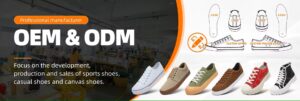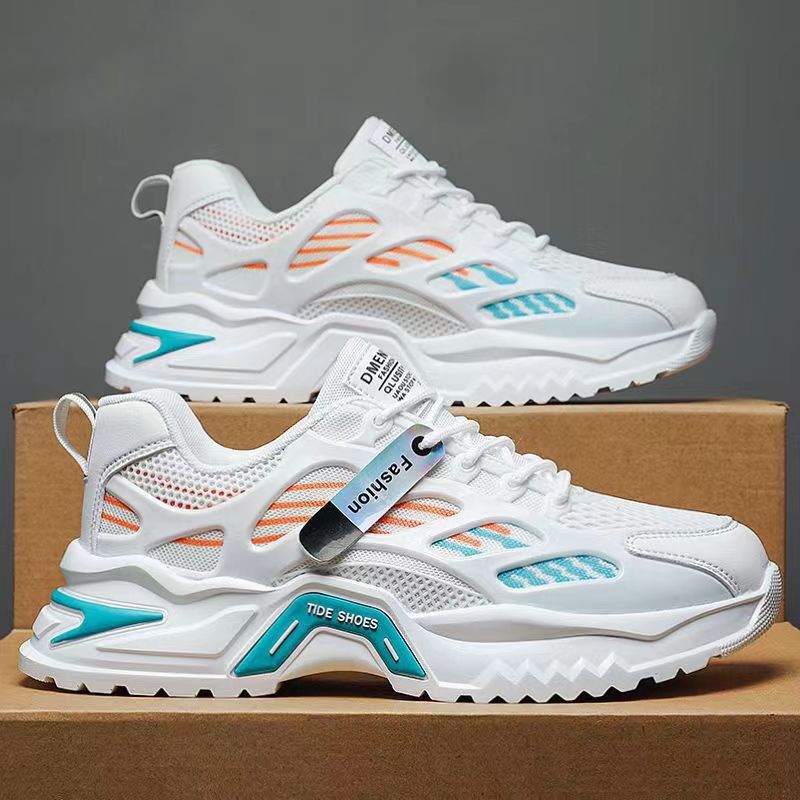In the global footwear industry, China stands as a powerhouse, with Guangzhou at the heart of it all. Whether you’re an emerging brand or an established retailer looking to expand, finding the right Guangzhou shoes factory is critical to your success. But with thousands of factories, trade centers, and wholesale markets, how do you navigate this vast ecosystem and select a reliable manufacturing partner?
This in-depth guide will walk you through the key steps to identifying, vetting, and partnering with the best shoes factory in Guangzhou. By following these actionable insights, you’ll set a strong foundation for your sourcing strategy and ensure the quality, scalability, and profitability of your business.

Why Choose Guangzhou for Shoes Manufacturing?
Guangzhou, the capital city of Guangdong Province, has long been a leading hub for footwear manufacturing. It offers several strategic advantages:
-
Consolidated Supply Chain: From materials sourcing to final packaging, Guangzhou’s well-developed supply chain streamlines production and reduces costs.
-
Skilled Workforce: Decades of expertise in the shoe industry mean you’ll have access to experienced craftsmen, designers, and technicians.
-
Product Variety: Guangzhou factories produce all kinds of shoes—sneakers, leather shoes, sandals, boots, children’s footwear, and more—catering to a wide range of market segments.
-
Proximity to Major Ports: Efficient logistics infrastructure facilitates smooth domestic and international shipping.
Given these advantages, Guangzhou is an ideal location to source high-quality footwear at competitive prices.
Step 1: Define Your Brand’s Needs
Before you start reaching out to factories, you must have a clear understanding of your product requirements and business model. Consider:
-
Product Type: Are you producing athletic shoes, leather boots, high heels, sandals, or eco-friendly shoes?
-
Target Audience: Are you selling to domestic Chinese markets, the U.S., Europe, or other regions? Different markets have different compliance standards.
-
Order Volume: Some factories specialize in small-batch production (ideal for startups), while others focus on high-volume orders.
-
Customization Requirements: Will you provide your own designs (OEM), or do you need the factory’s design services (ODM)?
-
Budget Constraints: Knowing your target price point will help you select the right factory tier.
Clarity at this stage will prevent miscommunication later and help you filter the right factories from the start.
Step 2: Research Guangzhou’s Key Footwear Markets
Visiting Guangzhou’s wholesale shoe markets is a smart way to get familiar with local suppliers. Here are the main markets to explore:
1️⃣ Huanan Shoes City (Hua Nan Xie Cheng)
As one of the largest shoes wholesale markets in Southern China, Huanan Shoes City is home to hundreds of shops and showrooms. It offers a wide range of shoes, including men’s, women’s, and children’s styles, in both low and high price brackets.
2️⃣ Metropolis Shoes City
Located in the Liwan District, Metropolis Shoes City is a popular destination for both domestic and international buyers. It hosts a diverse array of suppliers offering everything from budget-friendly footwear to premium leather shoes.
3️⃣ Zhanxi Shoes Wholesale Market
Zhanxi is a massive cluster of over 4,000 merchants dealing primarily in leather shoes. If you’re focused on high-quality leather products, Zhanxi is worth a visit.
4️⃣ Global International Shoes Plaza
This market specializes in medium- to high-end shoes, including men’s and women’s leather styles, sneakers, and casual shoes. It’s a good place to meet brand agents and find private-label manufacturers.
5️⃣ Guangda Foreign Trade Shoes Plaza
Spanning a large area, Guangda focuses on both local and export markets, offering a variety of footwear like hiking boots, kids’ shoes, and beach shoes. It’s an excellent place to scout export-ready factories.
Step 3: Attend Trade Shows for Footwear in Guangzhou
Trade fairs and exhibitions provide a concentrated opportunity to meet manufacturers, inspect samples, and negotiate deals. Two key events to consider are:
-
Canton Fair: This bi-annual event in Guangzhou is China’s largest trade fair, attracting thousands of shoe manufacturers. It’s a one-stop destination to meet factory representatives, check their capabilities, and compare products.
-
Specialized Footwear Trade Shows: Smaller, niche exhibitions focusing exclusively on shoes can help you find trend-setting designs and innovative factories.
Attending trade shows allows you to see the latest collections, gauge market trends, and build direct relationships with factory owners or sales teams.
Step 4: Use Online Sourcing Platforms and Directories
While visiting markets is invaluable, you can also use digital tools to expand your search:
-
Alibaba & Global Sources: These platforms list thousands of Guangzhou shoe factories. You can filter by product type, MOQ, certifications, and more.
-
LinkedIn and B2B Directories: Many factories have LinkedIn profiles where you can learn about their operations, client base, and team.
-
Industry Reports: Market insights from research firms or industry publications can point you toward reputable factories.
Remember: Always verify the information you find online with proper due diligence.
Step 5: Evaluate Potential Factories
Once you’ve identified several candidate factories, it’s time for deep vetting. Key factors to evaluate include:
Factory Capabilities
-
Production Capacity: Can they handle your order size? Ask about their daily output and peak season volumes.
-
Product Range: Do they specialize in your shoes category (e.g., leather boots, sneakers, kids’ shoes)?
-
Technical Capabilities: Can they handle advanced techniques like 3D printing, embroidery, or sustainable materials?
Certifications
Check for:
-
ISO 9001 (Quality Management)
-
BSCI or Sedex (Ethical Compliance)
-
REACH, ASTM, or other relevant product certifications
These credentials demonstrate the factory’s commitment to quality and compliance.
Past Client References
Ask for client references or case studies. A factory that has worked with international brands is likely experienced in meeting high standards.
Step 6: Request Samples
Before placing a bulk order, always request samples. Evaluate:
-
Material Quality: Is the leather genuine? Are synthetic components durable?
-
Craftsmanship: Are stitches even? Are glue lines clean? Is the sole securely attached?
-
Fit and Comfort: Test wear samples to ensure proper sizing and comfort.
-
Packaging: Inspect how the shoes are packed for shipping—poor packaging can lead to damage in transit.
Sample evaluation is crucial to avoid unpleasant surprises during mass production.
Step 7: Conduct Factory Audits
If possible, visit the factory in person or hire a third-party auditor to do it for you. A factory visit allows you to:
-
See their production lines and machinery
-
Assess their raw material sourcing
-
Meet the team and gauge professionalism
-
Check working conditions and compliance with labor laws
-
Inspect storage areas for inventory and QC processes
A reliable factory will welcome inspections and demonstrate transparency.
Step 8: Negotiate Terms and Sign Contracts
Once you’ve shortlisted a factory, it’s time to negotiate:
-
Pricing: Negotiate per-unit costs based on volume and complexity.
-
MOQ: Confirm minimum order quantities.
-
Lead Times: Set clear deadlines for sample development and mass production.
-
Payment Terms: A common structure is 30% upfront, 70% before shipment.
-
Quality Standards: Define acceptable defect levels (e.g., AQL standards).
-
Intellectual Property Protection: Include clauses to protect your designs and brand.
A written contract outlining these terms will protect both parties and prevent misunderstandings.
Step 9: Oversee Production and Quality Control
Don’t just place an order and hope for the best. Actively manage production through:
-
Pre-Production Approval: Finalize materials, patterns, and prototypes before bulk cutting.
-
Inline Inspections: Monitor stitching, assembly, and finishing during production.
-
Final Inspection: Conduct a random quality check of finished goods before shipment.
You can hire third-party quality control services if you’re not based in China. This investment is small compared to the cost of defective goods.
Step 10: Build a Long-Term Relationship
Once you find a factory that meets your standards, invest in building a solid partnership. Good relationships lead to:
-
Priority production during peak seasons
-
Better payment terms over time
-
Early access to new materials and technologies
-
Collaborative design and innovation opportunities
Treat your factory as a partner, not just a vendor, and your business will benefit in the long run.
Final Thoughts
Finding the best Guangzhou shoes factory is a process that requires careful planning, research, and communication. By defining your needs, exploring wholesale markets, attending trade shows, vetting suppliers, and ensuring quality control, you can secure a reliable manufacturing partner that aligns with your brand’s vision and growth goals.
The journey may seem complex, but Guangzhou’s thriving footwear industry offers incredible opportunities for businesses willing to invest the time and effort. With the right approach, you can build a strong supply chain that delivers high-quality shoes, supports your brand identity, and drives profitability for years to come.
